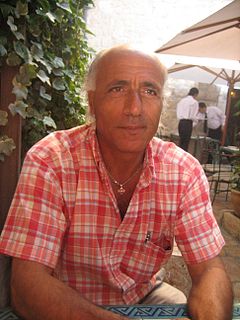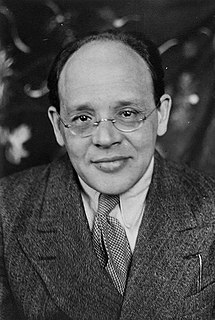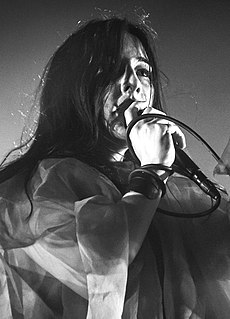A Quote by Andrea Bocelli
I change the language with which I use my voice. In opera, I know I have an orchestra behind me; I have to communicate to people very far from me.
Related Quotes
When you sing opera you are very far from the people, you are onstage, and between you and the people there is the orchestra. So you have to launch your emotions very, very far. When you sing pop, you are singing very close - the microphone is very close to your mouth. You can whisper your emotions into the microphone.
I've always loved opera; it never occurred to me that I would write a proper libretto. One of my closest friends is a composer, Paul Moravec, and a few years ago, Paul and I were at lunch, and I said to him, "you really have to write an opera." So, he says very casually to me, "I'll do it if you write the libretto." Well, little did I know that the within a couple of years we would end up getting a commission from the Santa Fe Opera to write an opera together, "The Letter," which turned out to be the most successful commissioned opera in the history of the Santa Fe Opera.
There is a narrow class of uses of language where you intend to communicate. Communication refers to an effort to get people to understand what one means. And that, certainly, is one use of language and a social use of it. But I don't think it is the only social use of language. Nor are social uses the only uses of language.
I don't like the sound of my own voice. And, for people I don't know, their impression of me is what they read on the internet, and they're so far off a lot of the time. I think people are intimidated by me, and I don't know why. Sometimes even my own bandmates can be intimidated, or irritated, by me. I come across as arrogant somehow. In reality, I've probably got the lowest self-esteem of anybody I know, which has really been rubbed in my face lately in personal situations.
The voice is certainly important and you can hear if it's beautiful or not, it's the gods who decide; it's more a question of what you do with the voice, which is the mysterious element. It's the personality behind the voice which makes the artist. The voice is a gift of God, but if you're not able to use this gift, what's left? Nothing but a beautiful voice, without nuance or color.



































